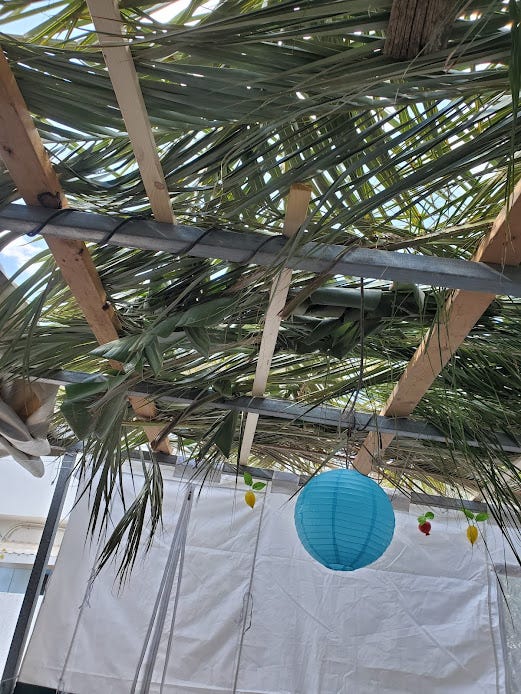Gratitude and Sukkot: Celebrating Connections and Community
Written on
Understanding Sukkot and the Importance of Thankfulness
In this piece, we delve into the relationship between gratitude and the festival of Sukkot, also referred to as the Feast of Tabernacles or Booths. The commandments governing the observance of Sukkot can be found in Vayikra (Leviticus) 23:33–43. This vibrant holiday takes place five days after the solemn Yom Kippur, lasting for a full week. The Torah instructs us to reside in a temporary structure known as a sukkah during this time.
The Torah states, “…you must live in sukkot; everyone included in Israel must live in a sukkah. This is so that future generations will know that I had the Israelites live in sukkot when I brought them out of Egypt; I am G-d your Lord.” (Vayikra 23:42–43). This commandment serves as a poignant reminder of the Israelites' journey through the wilderness post-liberation from Egypt, where they relied on HaShem for protection and sustenance while dwelling in temporary abodes.
Gratitude and Reflection During Sukkot
Sukkot is a season of thankfulness, honoring both the agricultural harvest and the blessings bestowed by HaShem throughout our history. The bond between gratitude and Sukkot manifests in several significant ways:
- Gratitude for the Harvest: Sukkot signifies the culmination of the agricultural season, a time to express appreciation for the bounty provided by HaShem. The act of residing in sukkot, which are simple and transient structures, serves as a reminder of the fleeting nature of material wealth and the reliance on HaShem’s generosity.
- Reflection on the Exodus: The temporary shelters of Sukkot evoke memories of the Israelites' journey through the wilderness, filled with miracles and divine support, such as the manna and water provided by HaShem. This festival offers a chance to reflect on those wonders and express our gratitude for His ongoing presence and care.
- Appreciation for Shelter and Community: Sukkot prompts us to value life’s essentials, including shelter. By living in sukkot, we become aware of the fragility of our physical dwellings and cultivate appreciation for having roofs over our heads. Additionally, Sukkot fosters community and unity, as family and friends gather to share meals and celebrate together. It encourages gratitude for the love and support of those around us.
- Connection to Nature: Sukkot uniquely connects us to the natural world, as the roof of the sukkah must be made from organic materials like bamboo or palm branches. The sukkah is decorated with fruits and vegetables, symbolizing the harvest's abundance and nature's beauty. Spending time in the sukkah allows us to engage with the outdoors, enhancing our appreciation for the marvels of creation. This experience promotes a sense of gratitude for the earth's resources and encourages responsible stewardship of the environment.
Engaging with Sukkot's Rituals
In summary, Sukkot serves as a profound reminder of the relationship between gratitude and our ties to HaShem, our history, the natural world, and our communities. By residing in sukkot and participating in the holiday's rituals, we nurture a spirit of appreciation, recognizing the blessings in our lives. Sukkot teaches us to honor the harvest, reflect on our journeys, cherish our shelters and communities, and embrace the beauty of nature. Through thankfulness, we strengthen our connection with HaShem and cultivate a sense of joy and fulfillment.
This video, titled "This World Is Temporary, But There's Hope | Sukkot 5784 | Rabbi Jason Sobel," discusses the temporary nature of our existence and the hope that Sukkot brings, reinforcing the themes of gratitude and divine provision.
In the video "Feasts & Faith: Sukkot (Feast of Tabernacles)," the significance of Sukkot is explored, highlighting its connection to faith and community, further emphasizing the importance of gratitude during this festive period.
